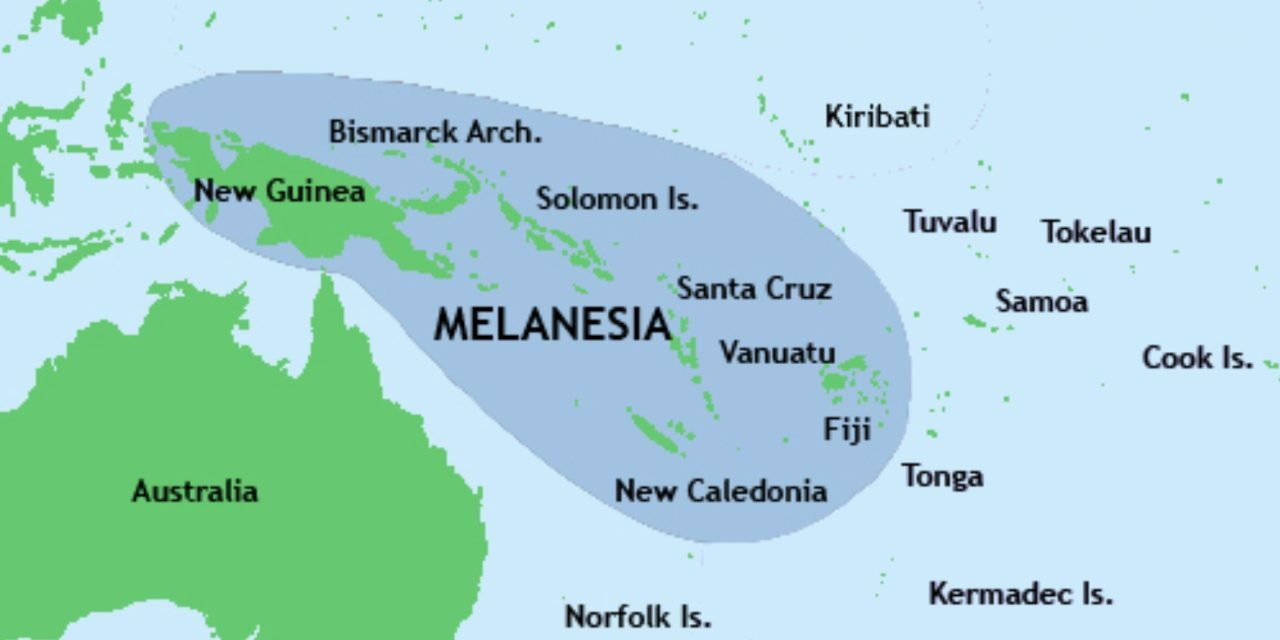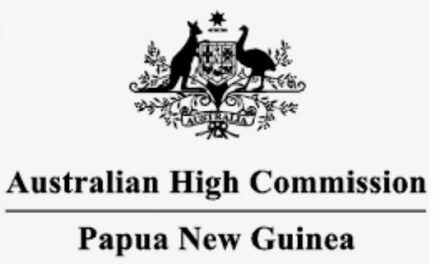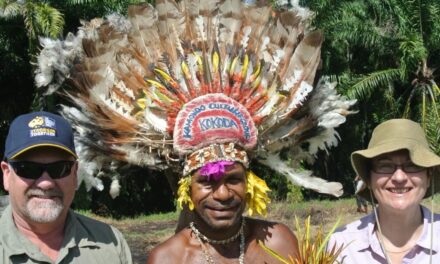30 September 2008
Wouldn’t it be great if . . . during the current election campaign . . . our political leaders took time out from babykissing, glad-handling and giveaway competitions and let us know what their plans are to address the challenges of our Melanesian neighbours within our ‘arc of instability‘.
- The establishment of a ‘Minister for Melanesia’ with a Department of Melanesian Affairs to focus on our relationship with the island nations in our region.
- The introduction of ‘Melanesian Studies’ into our education system at primary, secondary and tertiary level to provide a deeper understanding of the range and complexities of Melanesian culture.
- The introduction of ‘Pacific Military History‘ to encourage young Australians to visit the battlesites that helped forge our identity during World War 11. Build more bridges!
- A ‘Seasonal Work Plan’ that would marry up ‘wan tok’ communities with specific farming communities e.g. Koiari with the Mallee; Orokaiva with The Hunter; Sepik with the Barossa; etc. etc. Included in the plan would be a compulsory educational component and a system of saving through remittance.
- A ‘Melanesian Exchange Program’ for public servants in all portfolio areas to assist in changing the culture of poor governance in Melanesia.
- Introduction of a ‘Melanesian Kiap Scheme’ to provide an opportunity for Australian graduates to live in villages and work in selected areas in partnership with PNG graduates for periods of up to two years.
- A ‘Melanesian Peacekeeping Force’ which included provision for long term exchange programs with the Australian Defence Force.
- Acceptance of a PNG National Rugby League Team into the Australian Rugby League competition (nothing would do more to unite the various PNG ‘wan-tok’ cultures than this initiative).
Other initiatives including a Melanesian Free Trade Zone, a common Melanesian currency, etc would be developed by the Minister for Melanesia through his Department of Melanesian Affairs.
The following extract from a paper titled ‘Strengthening Our Neighbour: Australia and the future of Papua New Guinea by the Australian Strategic Policy Institute provide sufficient reason for our policy makers to address this issue:
”PNG is one of our three top-priority foreign policy challenges, along with China-US relations and the future of Indonesia.
“The deep nature of the problems in PNG makes it perhaps the toughest we face.
“It is the one which probably places the biggest demands directly on Australia, and the only one we face largely alone.
“The experience of the Economic Enhancement Program reminds us how hard it will be to find new policy approaches that work in PNG.
“This is especially complex for Australia. We are not just PNG’s close neighbour and the major power in its region. Our previous colonial role there, the circumstances of independence, and the complex relationship that has developed since independence, have all made this a fraught and often difficult relationship.
“Helping to build effective and appropriate state institutions in a country like PNG is inherently difficult; there is no established methodology for this kind of state-building. PNG has now reached the point at which its institutions are too weak themselves to undertake and sustain the kind of major reforms needed to turn the country around. If PNG is going to be strengthened, it is going to need much more help – and different kinds of help – than it has received over the past three decades.
“If Australia does not take the lead in offering that help, no one else will.
”Policy choices sometimes have a brutal simplicity. Any Australian policy program for PNG that does not address the underlying weakness of the PNG state and nation has no reasonable chance of reversing the negative trends of much of the past thirty years. To make a real difference, we need new policy approaches that can help get to grips with the underlying weakness of state and nation in PNG, and remedy the problems that have bedevilled the bilateral relationship. But such approaches will entail a deeper engagement, greater commitment and even bigger costs than we have been prepared to accept so far, and it will require big changes to the way we think about and conduct our relationship with PNG.’“
A dedicated ‘Minister for Melanesia’ and ‘Department of Melanesian Affairs’ is an essential first step!
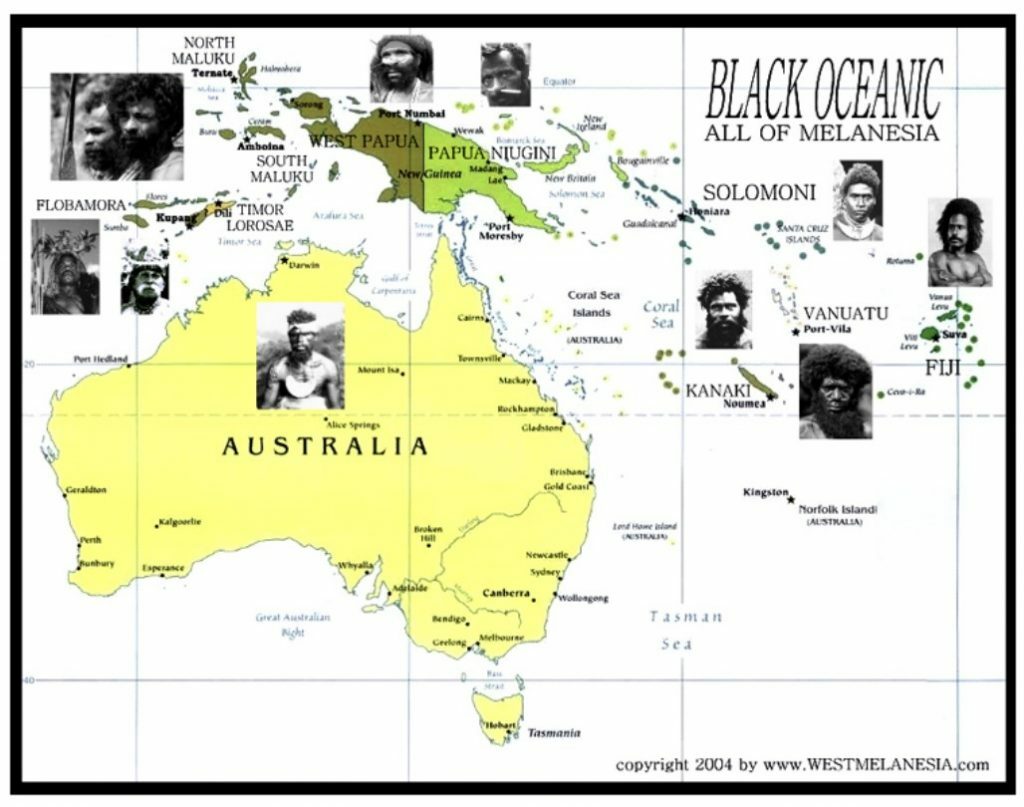
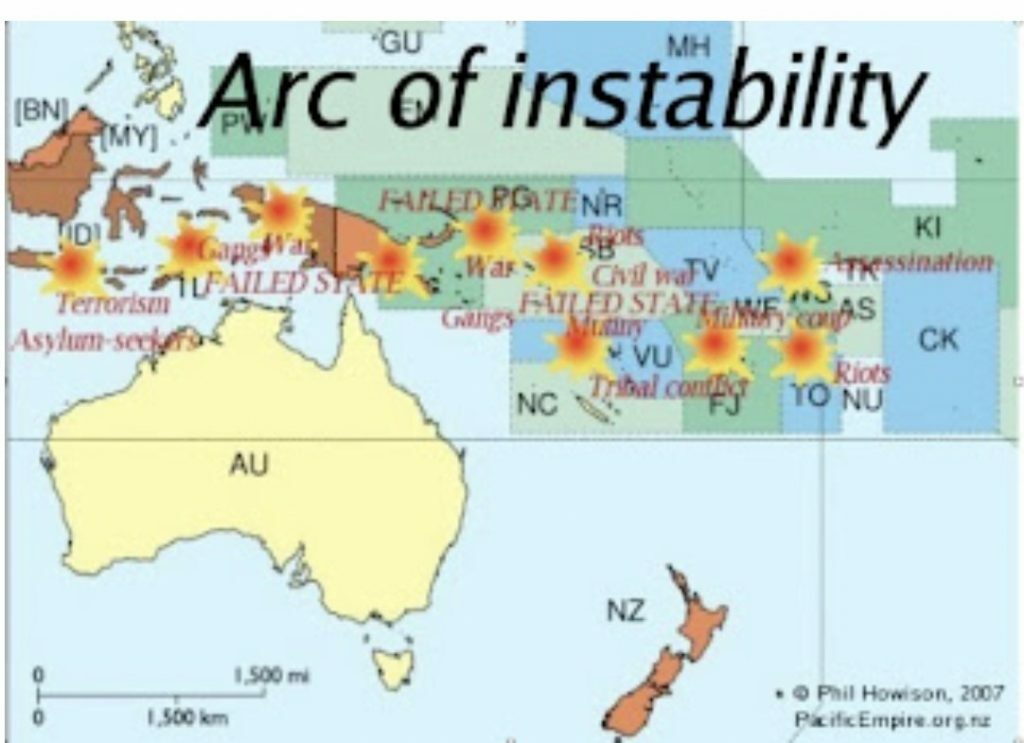
The 3rd of November would be an appropriate day for a major announcement in this regard as it is the 65th anniversary of the recapture of Kokoda by our diggers!

